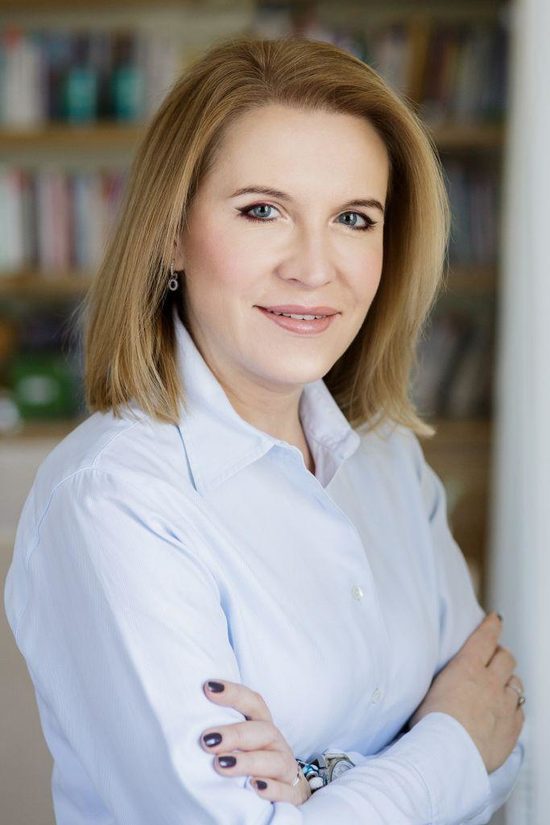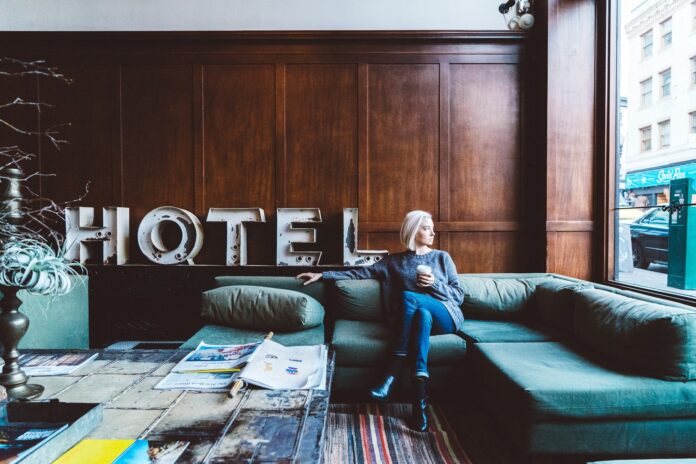Thousands of disposable cosmetics, washing tons of towels, lights always on, excessive amounts of food… The list of ecological sins of the hospitality industry seems endless. We talk with Violetta Hamerska – a hotel market expert in product and service quality and Guest Experience about how to fight those sins and whether the Covid-19 pandemic will make hoteliers reflect on a more sustainable business model.
The hospitality industry is trying to keep abreast of the times and be “eco-friendly”. Guests (often in exchange for a drink at the bar) can opt out of daily room cleaning or a change of towels. How do you like such ideas?
In order to be sustainable, the hospitality industry must undergo profound changes to its system. Today, we can observe inconsistent and random actions that are supposed to look good, but often, not only do they divert attention from the heart of the matter, they can also work to its disadvantage. A great example of such a campaign action was the campaign promoting the abandonment of plastic straws. How did it work in practice? In one of the hotels I got a drink with a paper straw, which got wet after a while. The barmaid offered me a plastic straw. It turned out that many guests complained about the sogginess of paper straws, so she had plastic ones in stock. The whole action resulted in twice as much rubbish. Such campaigns do not contribute much to long-term measures.
So how would you introduce such measures to make them meaningful?
I would expect thinking about the introduction of sustainable solutions through a process. Concepts and strategies for action should be developed, because there are many areas where pro-environmental thinking can be demonstrated. Of course, there are also things that we cannot control immediately, such as an obsolete and energy-inefficient building structure, which usually requires costly outlays. But there are many things that can and should be changed. As a person dealing with the design of guest services and experiences, I think that efficiency in this area requires thinking about the ecology of the hotel as a process. This would require a step-by-step analysis, together with the guest, of all their contact with the hotel, breaking it down to examine in detail and modernize. Campaigns may be cool. They will sell well, catch attention for a moment, but I get the impression that these are just actions for appearances’ sake.
Akcyjność może jest fajna. Dobrze się sprzeda, przykuje na chwilę uwagę, ale mam wrażenie że są to działania na pokaz.
And which of the hotel sins irritates you most?
Food produced in excessive quantities. I get irritated with buffets full of products, often of low quality. They provoke you to take large portions, eat with your eyes. As a result, we have unfinished meals left by guests. In my opinion, nothing has changed here since the 1990s.
We are making a mistake of thinking about food as something luxurious, but not because of its quality, but because of the quantity.
Daily cleaning is another issue. I am often struck by the fact that despite the guest’s information that there is no such need, their room is cleaned anyway. In my opinion, cleaning a room during a three-day stay is a waste of energy, materials and littering the planet. Wouldn’t it be enough to empty the dustbin? What is missing here is a dialogue with guests and openness to their expectations.

But I guess not everyone acts so thoughtlessly. You must know examples of innovative and good practices.
Of course! More and more hotels are trying to act in a more thoughtful way – to process food themselves, e.g. squeezed fruit for breakfast, which is used for baking. Hotel gardens and herbal gardens are set up, as well as smokehouses in accordance with old food production methods.
Some time ago, it was a very positive surprise for me to see how many hotels put beehives on their roofs. This happens regardless of location – both in the centres of large cities and in villages.
One hotel chain had an interesting idea: birdhouses and birdbaths were created to help birds survive the hot summer. The project is gracefully called “Hotel for Birds”. I think it is a very nice initiative. I hope this is a good start and example of social responsibility for other hotels.
We are talking at the beginning of May, a few days after the first recommendations concerning the principles hotels should follow after resuming operations. Can the coronavirus pandemic be an impulse for the hospitality industry to change something, also for the benefit of the planet?
I do encourage hoteliers to treat this time as a moment for reflection. The current situation is a great opportunity for change, because everything, and above all our habits and behaviour will have to change. First of all, things that can be a source of infection will disappear from the rooms. In the long run, it may turn out that they will not return to these rooms. The question arises – what about hotel restaurants? For the time being, only room service and take-out food options are allowed. I hope that this will contribute to changing habits. A good opportunity to convince guests that a rich offer does not necessarily mean excessive amounts of food. That good food is quality food, prepared in a natural way, with local products. Analysing this topic would be a chance for hotels not only to reduce food wastage, but would also be an opportunity for better personalization, tailoring meals to the needs of the guest. On the other hand, I am worried that the pandemic makes us feel the desire, fully justified, to use plastic disposable gloves, plastic bags, etc. It is frustrating that we have to make such choices in order to take care of our own safety.
Interwieved by Anna Nahajska

Violetta Hamerska
is a Guest Experience expert. She specializes in designing services and experiences for guests and psychology of service. She works as an expert, trainer, speaker, mentor and consultant. She audits, certifies, advises investors and hotel managers. She manages renowned projects: Family-Friendly Hotel (for 12 years) and Dog in a Hotel (for 3 years).








